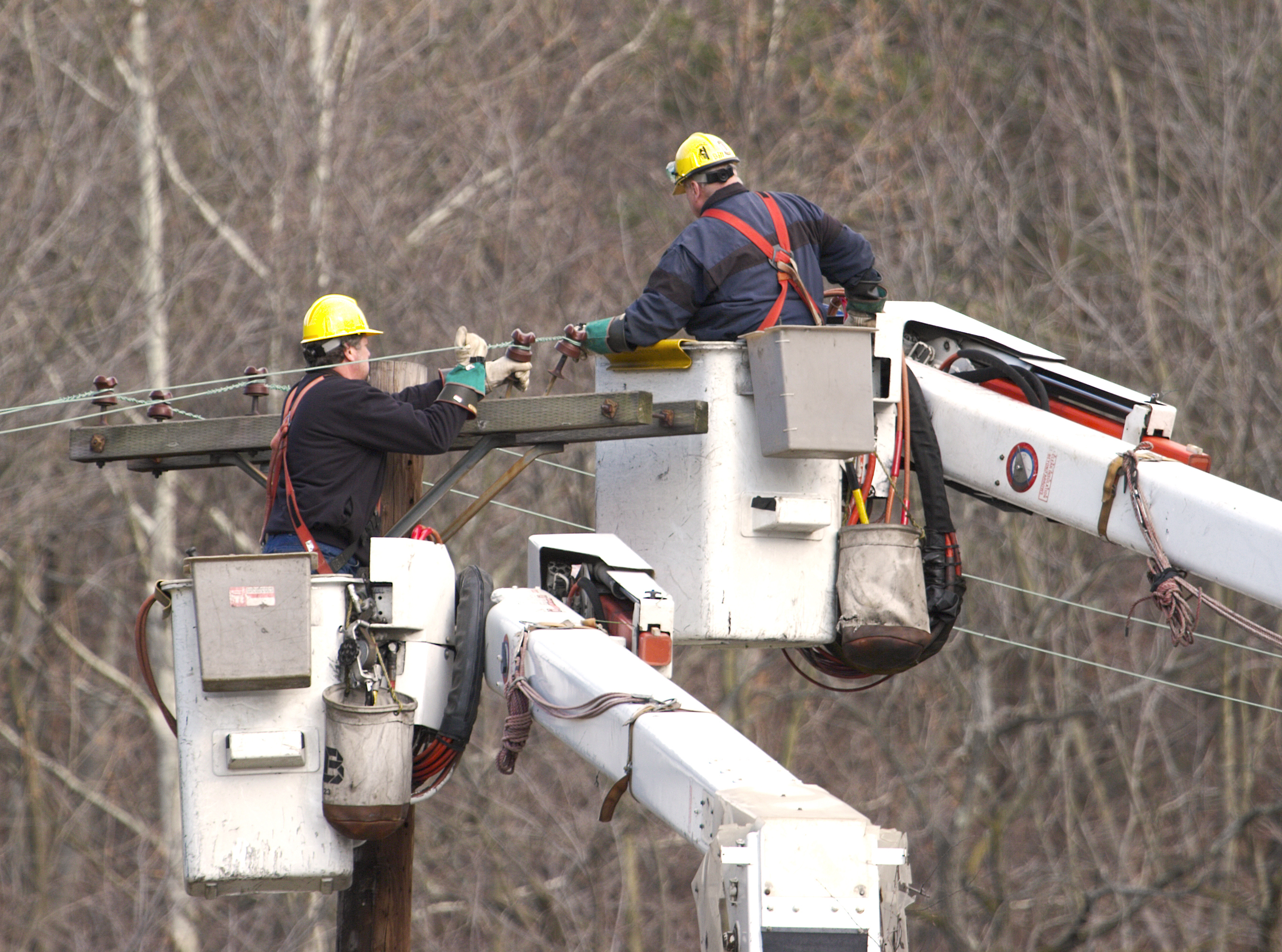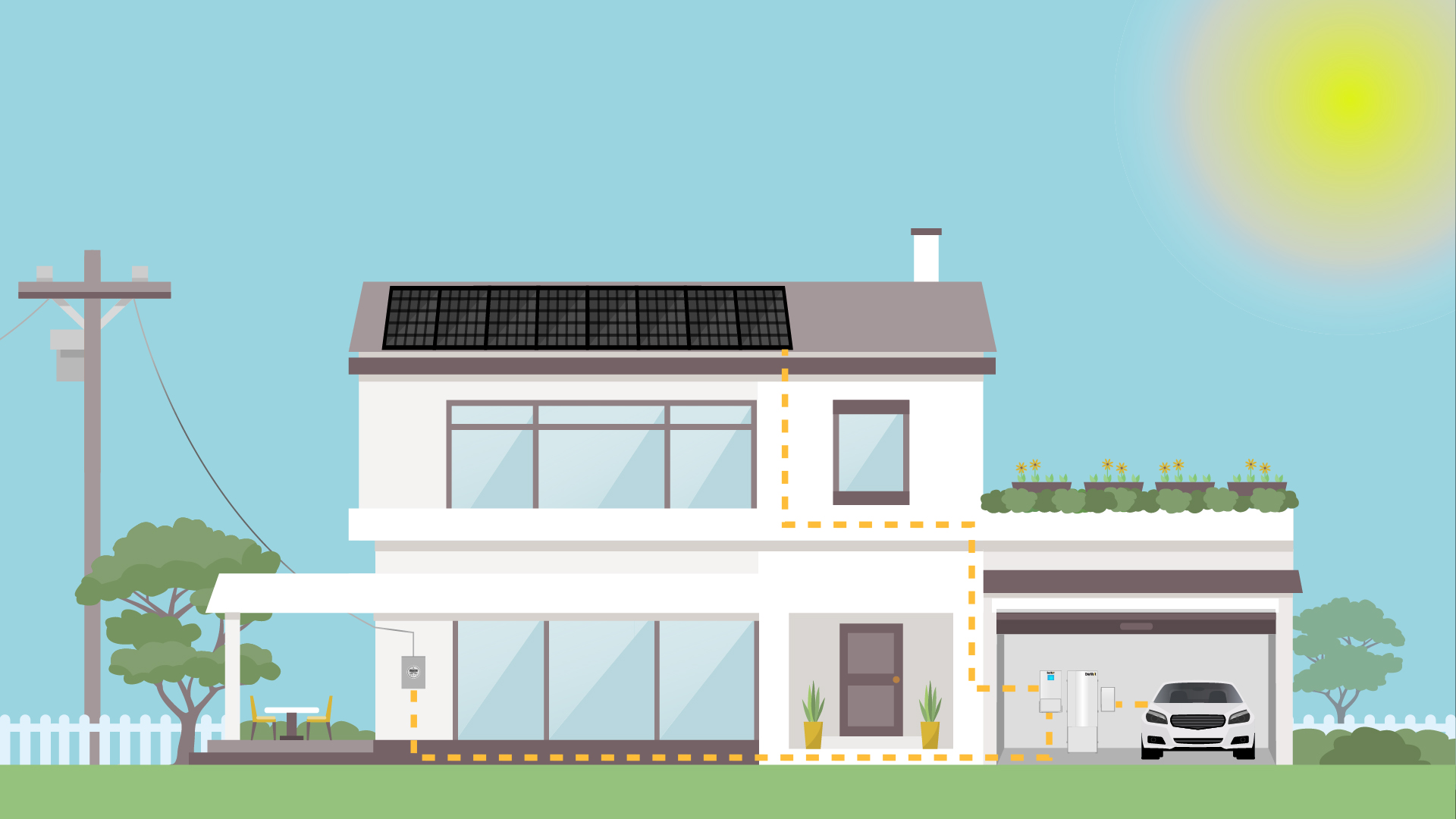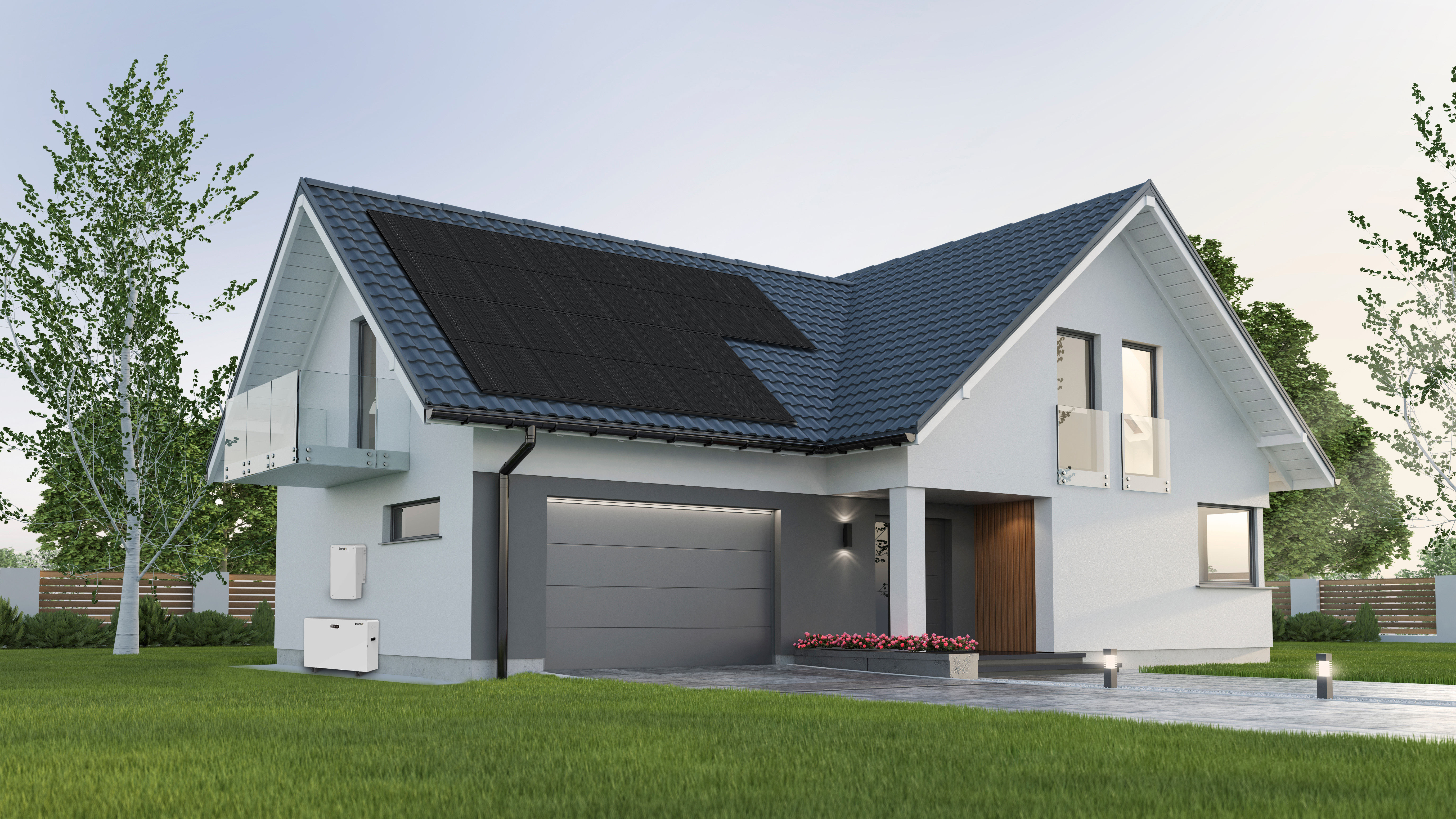Extreme weather events such as heat waves, wildfires, and strong storms are becoming more common. In 2022, the U.S. experienced as many as 18 separate weather or climate disasters that cost more than $1 billion in damages, tying for the third most disasters recorded in a single calendar year. Those disasters have also been resulting in massive power outages. In fact, 83% of major power outages between 2000 and 2021 were due to weather-related events.
This surge in unpredictable weather, coupled with a range of available incentives, means more homeowners are turning to solar and battery storage as an effective solution for keeping the lights on when the grid goes down.
But there is some confusion around what to do if you have solar and the power goes out — and where batteries come in. Let's look at how coupling a battery storage system with your solar panels can help you keep the lights on in an outage.
Can you use solar panels during power outages?
Contrary to popular belief, installing rooftop solar panels doesn't guarantee that you'll have power during a grid outage. A grid-tied solar system must be turned off when the power goes out to protect utility workers. However, if you combine your solar system with battery storage, your battery stores excess electricity that your solar panels generate.
You can tap into stored solar power during a power failure. Some home battery systems, such as the Panasonic EVERVOLT, even enable you to keep your solar panels running throughout a grid failure so they can keep recharging your battery.
What happens to a battery system during a power outage?
Batteries are typically connected to the grid, as well as other power sources such as solar panels. A unique feature of the EVERVOLT battery system is that it can also be connected to a generator. If the grid fails but you don't have solar power, you can continue operating key appliances and mobile devices by charging your battery through the generator until power is restored.
As soon as an outage occurs, a battery system detects it and turns on within milliseconds. The transition is so seamless that you likely won't even notice it happening. The battery will start delivering the power it has already stored. If it's connected to solar panels or a generator, it can continue to receive a charge.
"Many homeowners are now combining solar panels with batteries," says Vikki Kumar, systems engineer for energy storage and solar at Panasonic Eco Systems. "So if an outage lasts longer than expected, your batteries continue to charge from solar and provide power."
Graphic credit: Panasonic Eco Systems
Can a battery power your whole home in an outage?
In a power outage, the battery's main purpose is to ensure you have sufficient power to be comfortable. But it won't be able to keep your entire home running without draining its charge very quickly — it's important to conserve power and minimize excessive loads to keep your battery operating for as long as possible.
For basic backup, most homeowners choose to buy just one or two batteries and select the essential appliances they need in the event of a power failure. These are known as your critical load. A certified installer will work with you to decide what these appliances are.
Typically, they might include your internet router, mobile devices, lighting, your refrigerator, critical medical devices, and your garage door opener. HVAC requires a lot of power to run, so you may need a second battery to power your heating and cooling.
If you want to back up your entire home, you will likely need at least three batteries, which can get expensive. An installer will help you size the right system for your home.
Photo credit: Panasonic Eco Systems
How long can a battery keep your home running?
"An EverVolt battery system can provide power to select backed-up loads for about six to nine hours, without solar charging the battery," says Kumar. "You can prolong this with additional batteries. If you have solar panels, you can expect the battery charge to increase about 10% in a span of 30-40 minutes."
In an outage, the appliances in your critical load will automatically receive power. You can turn these appliances on and off to conserve electricity, but you can't change which devices are backed up unless you have a smart panel, which can be installed alongside your battery storage system.
A smart panel is controlled from a mobile app and gives you visibility on which appliances are being powered and how much power they are consuming. You can turn appliances on and off from the app, too. This way, you don't have to decide upfront which devices you want in your critical load.
Batteries powered by solar panels can keep your home running even when an outage lasts for several days. And while it is possible to back up your whole home, just one or two batteries can easily give you what you need to stay comfortable and keep working with minimal interruption.
For more information about making the solar switch with Panasonic EVERVOLT® solar panels and battery storage bundles, talk with a certified installer and get all your questions answered.






